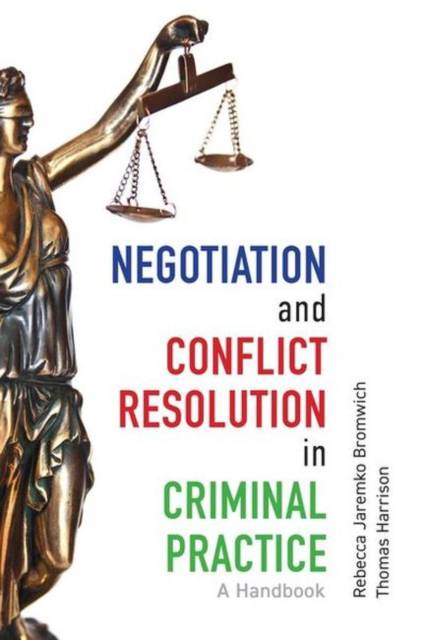
- Retrait gratuit dans votre magasin Club
- 7.000.000 titres dans notre catalogue
- Payer en toute sécurité
- Toujours un magasin près de chez vous
- Retrait gratuit dans votre magasin Club
- 7.000.000 titres dans notre catalogue
- Payer en toute sécurité
- Toujours un magasin près de chez vous
Negotiation and Conflict Resolution in Criminal Practice
A Handbook
Rebecca Bromwich, Thomas HarrisonDescription
Lawyers, Crown counsels, district attorneys, and paralegals are often tasked with managing negotiation and conflict resolution in the courtroom; however, very little theory or literature surrounding this specialization exists. This handbook effectively closes these gaps and extensively discusses theories of negotiation and conflict resolution in criminal practice. Part one discusses communicating effectively and appropriately with clients, court staff, and opposing counsel by identifying and establishing cultural competence, rapport, and nonverbal cues. Part two identifies alternative processes in negotiation and conflict resolution including victim-offender mediation and retroactive justice, while part three covers career development in areas such as managing challenging clients and developing strategies for dealing with high-stress scenarios.
This ground-breaking resource is well suited to students in a wide variety of courses that specialize in negotiation and conflict resolution including criminal justice, law, paralegal, police studies, or criminology.
FEATURES:
- Includes learning objectives, chapter overviews, case studies, ethical dilemmas, and suggestions for further reading
Spécifications
Parties prenantes
- Auteur(s) :
- Editeur:
Contenu
- Nombre de pages :
- 190
- Langue:
- Anglais
Caractéristiques
- EAN:
- 9781773381480
- Date de parution :
- 15-11-19
- Format:
- Livre broché
- Format numérique:
- Trade paperback (VS)
- Dimensions :
- 152 mm x 229 mm
- Poids :
- 263 g







